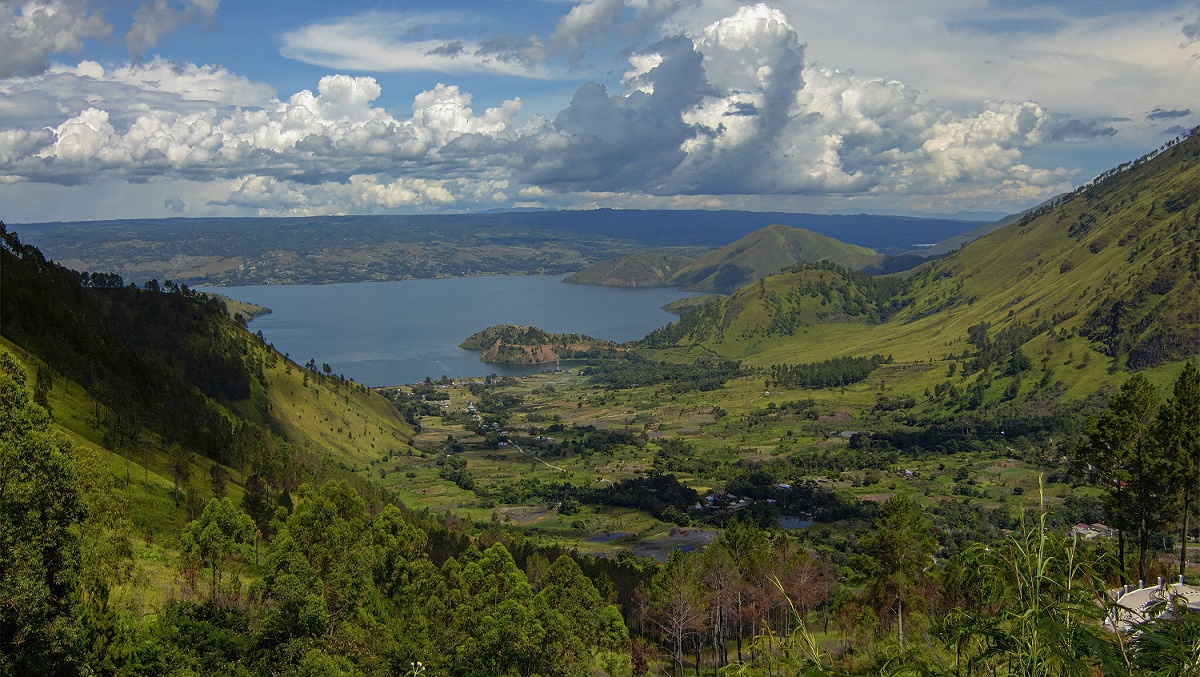View in the Bulletin of Atomic Scientists
This article discusses how society can use examples like Lake Toba to understand that global catastrophes exist and that more can be done to prevent them.
The article begins as follows:
On the Indonesian island of Sumatra, there is a large lake that used to be a mountain. How is it that a mountain becomes a lake? Simple: It erupts. This mountain on Sumatra unleashed an utterly massive volcano eruption 75,000 years ago. For perspective, it was the largest eruption in the last 25 million years. And so today, Sumatra has the beautiful Lake Toba instead of a Mount Toba.
The Toba eruption may have been the greatest catastrophe in human history. It occurred toward the beginning of the most recent ice age. Ash from the eruption blocked incoming sunlight, causing temperatures to plummet. Living conditions likely became extremely harsh. Some scientists have proposed that the eruption caused a sharp decline in the human population, perhaps to as few as 4,000 people. The human species may have teetered on the edge of extinction.
Think about all that’s happened in the last 75,000 years. Thousands of generations, billions and billions of people, have lived since then. The agricultural revolution began only about 10,000 years ago, the industrial revolution 250. People today have lives that would be completely inconceivable to the people alive 75,000 years ago. Yet, those people are our ancestors. Without them, none of this would have ever happened. Without them, we would not be here today. We owe our existence to our distant ancestors surviving the Toba eruption.
The remainder of the article is available in the Bulletin of Atomic Scientists.
Image credit: Bisajunisa
This blog post was published on 28 July 2020 as part of a website overhaul and backdated to reflect the time of the publication of the work referenced here.










